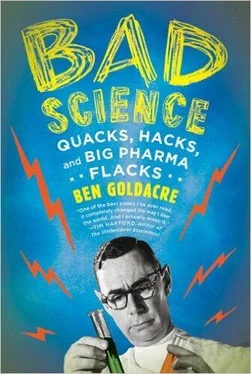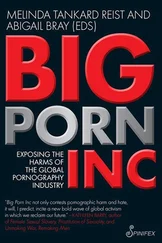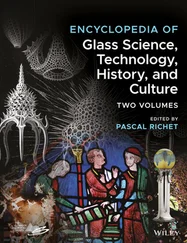The media’s problem is that the vast majority of today’s scientific advances simply happen too gradually to be newsworthy. There was a time, however, when this wasn’t the case: between 1935 and 1975, groundbreaking science was being churned out constantly.
One example of this was the tools used to fight polio. Scientists discovered that polio paralyzes our muscles, thus making it impossible to breathe. To combat this, mechanical ventilation and intensive care were created, both of which saved countless lives.
However, the golden age of scientific discovery is past, and scientific advances are now piecemeal. For example, refinements in esoteric surgical methods and a better understanding of drugs contribute to a longer lifespan, but these kinds of minor changes are slow, and not really all that exciting – certainly not interesting enough for newspaper editors, who prefer to report bold, shocking headlines.
Consequently, many newspaper “science” stories are trivial, wacky and simply published to grab your attention.
For example, you might remember one whimsical essay by a political theorist on the way humans will evolve in 1,000 years’ time, which was circulated in many newspapers. These stories claimed that by the year 3000 everyone would be coffee-colored and we would have split into two separate species – one tall, intelligent and healthy, the other short, stupid and unhealthy.
These bold claims fly in the face of evolutionary theory, but did that stop the papers from publishing them? No. In fact, it was later discovered that the story was paid for by Bravo, a men’s TV channel, to celebrate its 21st year of operation. Although the story created the air of a scientific investigation, in reality it was merely a publicity stunt.
The media are compelled to scare people with science stories that lack evidence.
It’s an unfortunate fact that we are drawn to headlines that play on our fears – for example, that we’ll all die from some horrible disease or be vaporized by an asteroid impact. The media love to scare us with terrifying stories – luckily, they are often total junk.
Stories that appear to be based on scientific evidence are often neither challenged nor properly investigated. For example, in 2005, newspapers reported that the “super bug” MRSA had been detected in various UK hospitals. Microbiologists from the hospitals, however, found no such bacterium.
In fact, the “expert” that had peddled the story was discovered to have little knowledge of microbiology, and even sold anti-MRSA products from his garden shed. In spite of this lack of credibility, the media were happy to report and promote his views.
One reason why non-experts often get exposure is that the media prefers people with media prowess, even if they aren’t best scientists, which causes false stories to be spread.
For example, British newspapers reported for nearly a decade on research that linked a measles, mumps and rubella (MMR) vaccine to autism in children, largely because of a single anecdotal paper led by the surgeon Andrew Wakefield.
All the large-scale, scientifically rigorous trials showed that MMR was safe. Unfortunately, as is often the case, the academics weren’t very good at communicating with the media.
Instead of reporting actual science, the newspapers employed generalists , or non-scientists, to write stories to accompany a crusade of emotional parents and patients battling against the political and corporate establishment.
In addition to the nonexistent link between the MMR vaccine and autism, Wakefield also had conflicts of interest and consequently suppressed data that didn’t fit his theory. Of course, the media couldn’t be bothered to look into this; as a result of their sloppy reporting, fewer people got vaccinated for MMR, and the cases of measles, mumps and rubella shot up.
The key message in this book:
Much of what is communicated to us as “science” is really just pseudoscience. The media feeds us sensation packaged as science, big pharma does whatever it takes to bring drugs to market, and charlatans insist on their fake evidence in order to make a few bucks. We let it all go unchallenged.
Конец ознакомительного отрывка
Купить книгу












